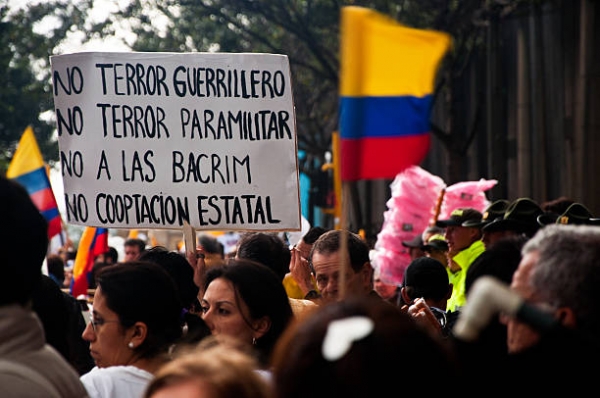Human Rights Watch (HRW) is an international non-governmental organization that investigates and reports on abuses occurring in all regions of the world. The organization is composed of country experts, lawyers, journalists, and others who research and expose human rights violations. HRW’s advocacy is directed towards governments, armed groups and businesses, striving to reform policies, enforce laws, and obtain justice. This report was written by Nathalye Villarreal, an Americas research assistant, and Juan Pappier, an Americas senior researcher.
While conducting research for this report, HRW interviewed more than 130 people in 20 states in Colombia, including: 40 human rights defenders, 39 prosecutors/investigators, 25 officials of the Human Rights Ombudsperson’s Office or the Inspector-General’s Office, 16 officials of international human rights and humanitarian agencies operating in Colombia, and 10 officials of the Duque administration. Furthermore, information requests were sent by HRW to various Columbian government agencies, and the responses they received are reflected throughout the report. Additionally, the report references official statistics and documents from the Colombian government, publications by international and national humanitarian and nongovernmental organizations, and news articles.
According to HRW’s report, Colombia has the highest number of slain human rights defenders in Latin America, with more than 400 murders since 2016. These killings are primarily attributed to the various armed groups in Colombia. Prior to its demobilization in 2016/2017, the Revolutionary Armed Forces of Colombia (Fuerzas Armadas Revolucionarias de Colombia, FARC) was the largest armed group in Colombia. The landmark peace accord, reached in 2016 between the Colombian government and FARC, led to the demobilization of the armed group and created “specific initiatives to prevent the killing of human rights defenders.” Additionally, the Attorney General’s Office began prioritizing investigations into “any such killings occurring as of the beginning of 2016.” Despite these actions, killings of human rights defenders have increased, as other armed groups have filled the breach caused by the demobilization of FARC.
By opposing the presence of armed groups or reporting their violations, many rights defenders have put themselves in harm's way. Other rights defenders have died during armed groups’ indiscriminate attacks on civilians. Remote regions of Colombia are particularly vulnerable to reoccurring violence, as law enforcement and judicial processes rarely get involved in these areas. HRW determined that “this absence of state institutions has left countless communities undefended.”
Although the 2016 peace accord outlined plans to “address illegal economies, lack of legitimate economic opportunities, and weak state presence—factors that have for decades allowed armed groups, including the FARC, to thrive,” the slow implementation of such plans has resulted in little to no improvement for the situation regarding human rights defenders. Furthermore, while the government has deployed military power to parts of the country, it has done little to fortify the justice system and improve access to public services, education, and legal economic opportunities. Sustainable solutions to decrease violence rely on the government's ability to bolster these circumstances.
In order to eliminate violence against human rights defenders, HRW recommends that President Iván Duque should begin by “increasing state presence in remote areas of the country, addressing the root causes of violence, and providing greater support to prosecutors investigating killings of human rights defenders.” Donor governments such as the European Union and US have the power to contribute to these efforts by supporting Colombian agencies responsible for preventing and bringing awareness to killings of human rights defenders. Additionally, they can make security assistance conditional upon demonstrating tangible evidence of improvements in human rights in Colombia. In conclusion, decreasing the number of slain human rights defenders depends on collective efforts from various agencies within the Colombian government, which can be supported by the international community.
To know more, please read:
Author: Sitara Sandhu; Editor: Gabriella Pavlakis







